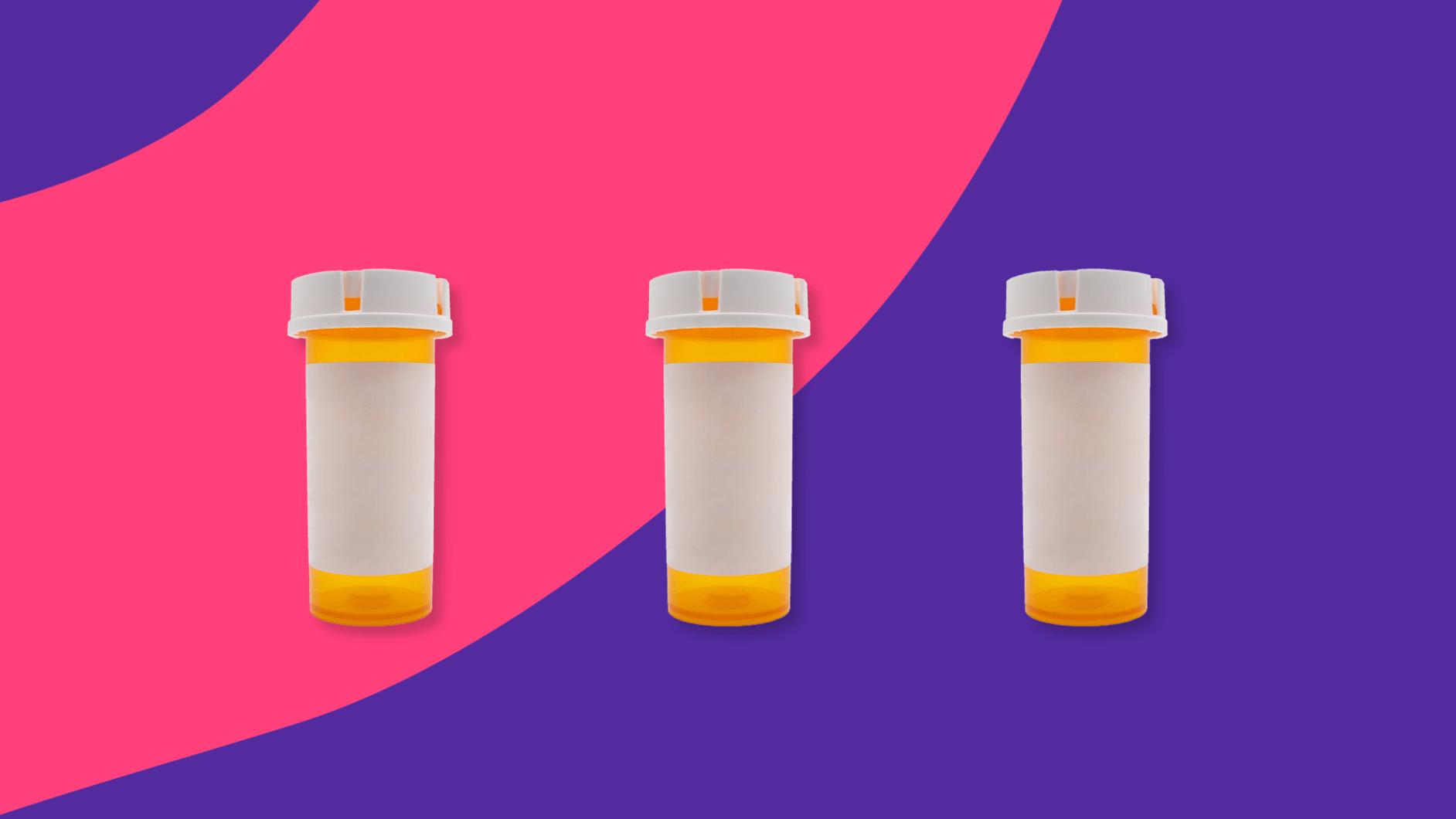Compare escitalopram alternatives | Zoloft | Cymbalta | Effexor XR | Wellbutrin XL | Remeron | Natural alternatives | How to switch meds
Are you looking for an alternative to escitalopram? You are not alone, and it is not because escitalopram is bad medicine. It’s more a matter of numbers. Roughly a third of the population has depression; escitalopram is one of the most commonly used first-line treatments. About 20% of people newly treated for depression look to change drugs. The reason for changing medications could be side effects or inadequate relief of worsening symptoms like depressed mood, suicidal thoughts, poor motivation, reduced self-worth, low energy, altered appetite, and poor concentration. Whatever your reason, you have a lot of options to choose from. Here, we will guide you through the list and highlight typical top picks.
What can I take in place of escitalopram?
Escitalopram is better known by its brand name, Lexapro. The drug belongs to the well-regarded selective serotonin reuptake inhibitor (SSRI) class of antidepressants. By increasing the serotonin in the synapse between brain cells, major depression or anxiety symptoms can hopefully be alleviated. If it does not work out, trying another SSRI could be worthwhile.
Beyond SSRIs, there are several options you might be interested in. Serotonin and norepinephrine reuptake inhibitors (SNRIs) are often the following choices, offering the potential to increase synaptic levels of two neurotransmitter brain chemicals. In other circumstances, atypical antidepressants and serotonin modulators are two different options that could make sense. Antipsychotics are sometimes called upon for the treatment of depression, most often to augment the effects of antidepressants. Older antidepressant medications like tricyclic antidepressants (TCAs) and monoamine oxidase inhibitors (MAOIs) are also in use. For anxiety alone, buspirone and benzodiazepine can be considered. Of course, you want to know more than just the available drug classes, so let’s get to it.
Compare escitalopram alternatives |
|||
|---|---|---|---|
| Drug name | Uses | Dosage | Savings options |
| Lexapro (escitalopram) | Major depressive disorder, generalized anxiety disorder | 10 to 20 mg once daily | Lexapro coupons |
| Zoloft (sertraline) | Major depressive disorder, obsessive-compulsive disorder, panic disorder, post-traumatic stress disorder, premenstrual dysphoric disorder, social anxiety disorder | 50 to 200 mg once daily | Zoloft coupons |
| Celexa (citalopram) | Major depressive disorder | 20 to 40 mg once daily | Celexa coupons |
| Prozac (fluoxetine) | Major depressive disorder, treatment-resistant major depressive disorder, obsessive-compulsive disorder, bulimia nervosa, panic disorder, bipolar 1 disorder with acute depression | 20 to 80 mg once daily for major depressive disorder | Prozac coupons |
| Paxil (paroxetine) | Major depressive disorder, obsessive-compulsive disorder, panic disorder, post-traumatic stress disorder, generalized anxiety disorder, social anxiety disorder | 20 to 50 mg once daily | Paxil coupons |
| Viibryd (vilazodone) | Major depressive disorder | 20 to 40 mg once daily | Viibryd coupons |
| Effexor XR (venlafaxine extended-release) | Major depressive disorder, panic disorder, generalized anxiety disorder, social anxiety disorder | 75 to 225 mg once daily | Effexor XR coupons |
| Cymbalta (duloxetine) | Major depressive disorder, generalized anxiety disorder, diabetic neuropathic pain, fibromyalgia, chronic musculoskeletal pain | 60 mg once daily | Cymbalta coupons |
| Pristiq (desvenlafaxine) | Major depressive disorder | 50 mg once daily | Pristiq coupons |
| Fetzima (levomilnacipran) | Major depressive disorder | 40 to 120 mg once daily | Fetzima coupons |
| Wellbutrin XL (bupropion extended-release) | Major depressive disorder, seasonal affective disorder | 150 to 300 mg once daily | Wellbutrin XL coupons |
| Remeron (mirtazapine) | Major depressive disorder | 15 to 45 mg once daily | Remeron coupons |
| Trazodone | Major depressive disorder | 25 to 100 mg two to three times daily | Trazodone coupons |
| Trintellix (vortioxetine) | Major depressive disorder | 10 to 20 mg once daily | Trintellix coupons |
| Amitriptyline | Depression | 25-150 mg once daily | Amitriptyline coupons |
| Zyprexa (olanzapine) | Schizophrenia, bipolar disorder type 1 mania or mixed or acute depressive, acute treatment-resistant major depressive disorder | 5 to 20 mg once daily | Zyprexa coupons |
Other alternatives to escitalopram
- Buspirone
- Nefazodone
- Anafranil (clomipramine)
- Norpramin (desipramine)
- Doxepin
- Imipramine
- Pamelor (nortriptyline)
- Protriptyline
- Trimipramine
- Amoxapine
- Marplan (isocarboxazid)
- Nardil (phenelzine)
- Parnate (tranylcypromine)
- Wellbutrin SR (bupropion extended-release)
- Paxil CR (paroxetine extended-release)
- Klonopin (clonazepam)
- Ativan (lorazepam)
- Xanax (alprazolam)
- Valium (diazepam)
Top 5 escitalopram alternatives
The following are some of the most common alternatives to escitalopram.
1. Zoloft
If escitalopram has been ineffective, it does not necessarily mean another SSRI like Zoloft will not help. Prozac, Celexa, Paxil, and Viibryd are other SSRIs. In fact, clinical studies have shown that changing to a different SSRI may have just as much chance of success as switching to a different category. Zoloft also avoids the potential for QT-prolongation—a change in electrical conduction in the heart that could be problematic with Lexapro and Celexa. It does not avoid other common adverse effects of SSRIs, such as weight gain and sexual dysfunction.
RELATED: Zoloft side effects: What to expect in the first week of taking Zoloft
2. Cymbalta
SNRIs, like Cymbalta, Effexor XR, Pristiq, and Fetzima, are often called upon next when SSRIs are ineffective or intolerable. These agents offer some potential additional benefits that could be appealing to you. Cymbalta has approval from the Food and Drug Administration (FDA) for treating diabetic neuropathy pain, fibromyalgia, and chronic musculoskeletal pain. If you have another of these conditions in addition to depression, you can get dual benefits.
3. Effexor XR
Over half of people with chronic migraine have depression, demonstrating how commonly comorbid these conditions are. The SNRI Effexor XR may provide both reliefs of depression symptoms and prevention of migraine. Effexor XR can be used off-label for migraine headache prophylaxis at times.
4. Wellbutrin XL
Sexual dysfunction can plague users of SSRIs like escitalopram. Reduced libido, difficulty achieving orgasm, and erectile dysfunction can all be problems. Wellbutrin XL is a norepinephrine and dopamine reuptake inhibitor, so it bolsters synaptic levels of these neurotransmitters in the brain. Based on its ability to avoid sexual side effects, Wellbutrin XL may be a good pick if these adverse effects are compelling you to change meds.
5. Remeron
Remeron is a tetracyclic antidepressant that is an option if changing antidepressant categories away from SSRIs like escitalopram makes sense. When it is chosen, it is usually because of its side effects, namely sedation and increased appetite. These effects can be positive for those suffering from insomnia and weight loss.
Natural alternatives to escitalopram
No prescription drug carries a guarantee of effectiveness, and every medicine has the potential for adverse effects. These accepted facets of drug treatment motivate many to look for nonpharmacologic interventions for their mental health. Psychotherapy with a professional therapist could be considered based on supportive evidence from clinical trials. Exercise also has some proof behind it. In comparison, light therapy has less support but still has some interest.
Supplements are also intriguing. Some limited evidence exists for using carnitine, creatinine, glycyrrhizic acid, omega-3 fatty acids, and zinc, mostly as adjuncts added to antidepressants. St. John’s Wort is an herbal drug for depression with proof to back it, but unfortunately, the lack of standardization in potency has led some expert psychiatry guidelines to caution against it. You should be aware that St. John’s Wort and other supplements can have significant drug interactions with other medications, so check with your healthcare provider for medical advice before starting or discontinuing anything.
How to switch to an escitalopram alternative
Getting an appointment with your healthcare professional prescribing your escitalopram is likely your next step in seeking new medication treatment. You have learned about the alternatives, and now you need to share your ideas. The provider will review your list of over-the-counter and prescription medications and your health history to avoid drug interactions and contraindications and look for compelling additional benefits that a new treatment choice could have for you. When the appointment is over, you should be able to walk out with a clear plan of action, whether that means continuing escitalopram, adding another agent, or switching to a different option.











